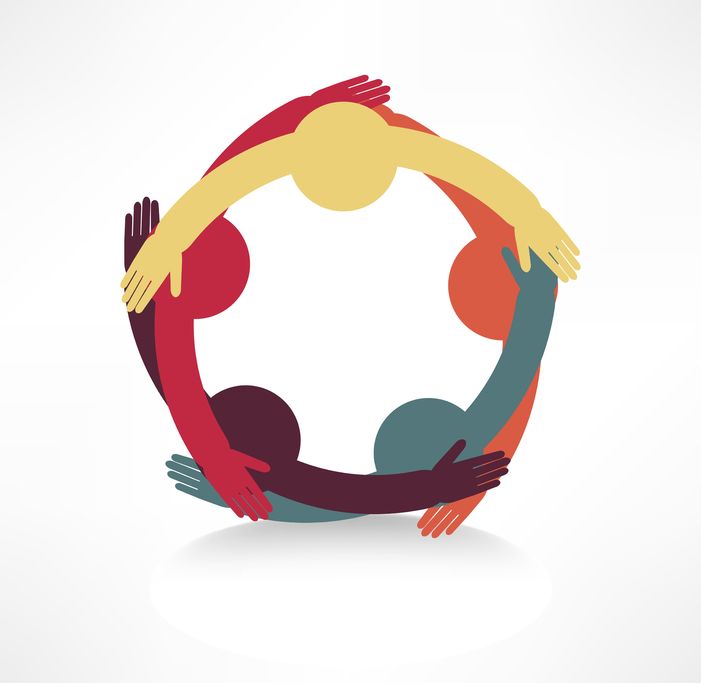Wraparound is a comprehensive and proven treatment modality for children and teens needing intensive supports in their home community. Using a carefully-designed and highly-customized planning process, the intention is to “wrap” the child – and family – with support systems and relevant resources in their community and everyday environments with the ultimate goal to either keep youth from transitioning to a higher, more intensive level of care (i.e., Residential Treatment) or to successfully transition a child from a high-level of care back home.
Wraparound is a family-centered, strengths-based, trauma-informed planning process that takes place in a team setting, where children and families participate in partnership with practitioners to achieve goals related to safety, permanency, and well-being.
To achieve success, wraparound requires participation from both the child and the family, holding great significance in building a plan for the entire family that is individualized, strength-based and community-resource driven. The plan truly needs to have “buy in” and ultimately “work” for the family. Key components include safety planning and family-driven goal setting that helps build a team to support the family and connect them to resources in their community that will increase self-sufficiency and stability in the home.
WrapWorks


- Wraparound Program. Wraparound is a voluntary program designed to help families who have children with emotional and/or behavioral challenges. Wraparound teams are made of caring professionals, friends and family who use Wraparound principles to meet the needs of families.
- The Wraparound process is a way to improve the lives of children with complex needs and their families. It is not a program or a type of service, but a team based planning process used to develop plans of care that are individualized based on the strengths and culture of the children and their family.
- Wraparound definition is - made to be wrapped around something and especially the body. How to use wraparound in a sentence.
- Wraparound is a collaborative process that brings together youth, family members, friends, teachers and service providers to create an individualized plan for addressing your child’s needs. You'll meet at least monthly as a team to engage in an intensive planning process.
WrapWorks is the Center’s wraparound program, contracted with the County of San Diego, to serve children and teens, ages 3-18, in the foster and probation systems. As some families are working with multiple agencies and service providers, the WrapWorks program provides the following to help streamline the experience and ensure the child and family receive the most out of the services provided:
- Care coordination
- Case management
- Individual and family therapy
- Medication management
- Peer support partners
- Crisis intervention
Services are provided at times and places most convenient for the family, and crisis intervention is available 24/7.
A Team of Support
In order to meet the unique needs for more than 80 families a month, the WrapWorks team involves a very diverse staff with various backgrounds, skills and connections in the community. Working alongside program managers, clinical supervisors and administrative staff are additional roles that allow the true wraparound model to be realized for each child and family:



- Intensive Care Coordinators: Masters level team leader, responsible for doing assessment and client plans, and setting up/facilitating team meetings
- Parent Partners: Former participants in the “systems” of child welfare, adoptions, special education, or probation – they act as a mentor, coach and advocate for parents and caretakers, helping to navigate them through the various systems
- Youth Partners/Skills Trainers: Young professionals who provide support and share their personal story with the youth, take youth into the community to learn life skills, and act as a mentor/advocate for the youth in team meetings
- Therapists/Substance Abuse Specialists: Provide individual and family therapy when therapy has not been available elsewhere
- Wraparound Fidelity Specialists: Train and coach all positions on the wraparound values and process
WrapWorks currently accepts referrals from Child Welfare Social Workers and Probation Officers in San Diego County. If your child is not involved in those systems, and you would like to explore private-pay wraparound, this can be possible as well.
For more information, please contact:
Carrie Kintz, LCSW
Program Director – WrapWorks
(858) 688-2485
ckintz@centerforchildren.org
If you have questions about eligibility or the referral process, please contact our intake and outreach coordinator
Alyssa Martinez
Intake and Outreach Coordinator
619-517-8816
amartinez@centerforchildren.org
Respite: Respite Care services are provided to participants unable to care for themselves and are furnished on a short-term basis because of the absence or need for relief of persons who normally provide care for the participant. Respite Care may not be provided as a substitute for regular child care to allow the parent/guardian to hold a job.
Wraparound
Habilitation: The goal of Habilitation services is to enhance the participant’s level of functioning, quality of life, and use of social skills, as well as build the participant’s and family’s strengths, resilience, and positive outcomes. The Habilitation service provider helps the participant accomplish these goals through development of the following skills: Identification of feelings; managing anger and emotions; giving and receiving feedback, criticism, or praise; problem-solving and decision making; learning to resist negative peer pressure and develop pro-social peer interactions; improving communication skills; building and promoting positive coping skills; and learning how to have positive interactions with peers and adults.
Wraparound Services For Foster Youth
Training and Support for the Unpaid Caregiver: Commonly referred to as Family Support and Training (FST), this is a service provided for a person who is providing unpaid support, training, companionship, or supervision for the youth. The intent of the service is to provide education and supports to the caregiver that preserves the family unit and increases confidence, stamina, and empowerment. Training and support activities, and the providers selected for these activities, are based on the family/caregiver’s unique needs and are identified in the Plan of Care (POC).
